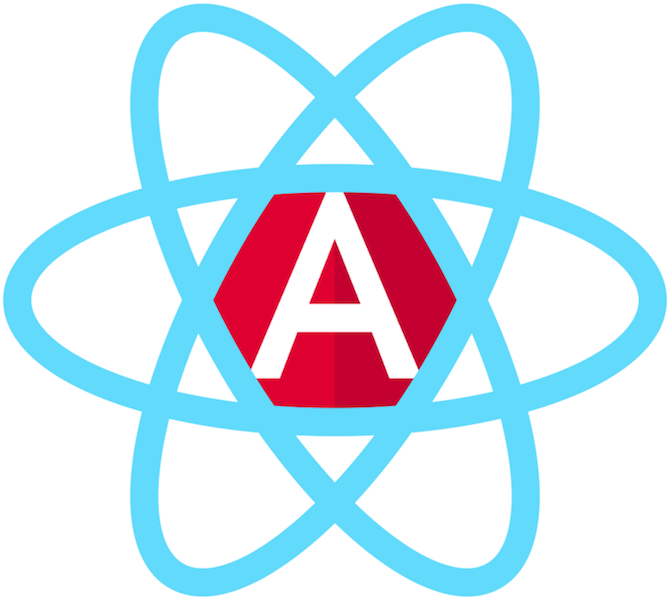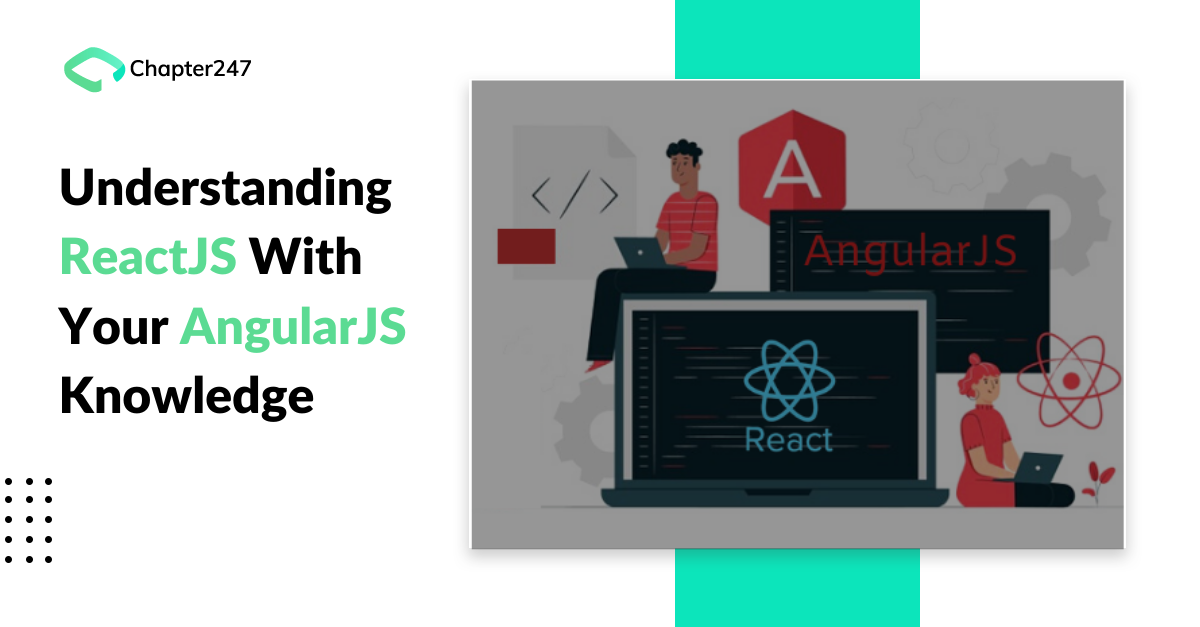Web Application Development has gained a lot of traction in different industries as the target audience is seeking convenience in the form of online services. While a lot of businesses over the spectrum of different industries are leveraging Web Applications to connect with a large number of potential customers globally, frameworks like ReactJS and AngularJS are used to build these applications.
A large number of developers are shifting from AngularJS to ReactJS Development, due to the high end benefits offered by React, which makes it a better choice for Web Applications Development over Angular.

If you are planning to pursue ReactJS Development, and have a sound knowledge of AngularJS, here’s how you can understand React using your knowledge of Angular.
But before we begin, mentioned below are a few points that should be kept in mind:
- Both React and Angular are based on JavaScript, yet Angular is a framework and React is a library.
- Terminology for React varies from that of Angular, and it is important to revisit the Angular Glossary before you begin to learn to React using Angular.
- Make sure you do not solve problems in React in Angular style.
- While Angular uses Typescript, React uses JSX for scripting.
Before we begin understanding React let us have a quick recall about what ReactJS and AngularJS are:
While AngularJS is a comprehensive ecosystem that enables you to create Dynamic Web Applications, it works with a systematic approach, consisting of an HTTP library, a method to manage forms, template, route, and module system.
With AngularJS Development you can create Web Applications without working on extra packages by simply using the command line interface tool, which is a part of the Angular ecosystem.
On the other hand, ReactJS is a JavaScript library, let’s you create Web Components. Unlike Angular where everything is inclusive, ReactJS needs to interact with other libraries to create Dynamic Web Applications.
These include integrating with the HTTP library, way to manage forms, and a route system. These combinations of libraries depends on the developer and may vary depending on the preference. This makes ReactJS very flexible in nature and makes it a favourable choice among the developers.
When it comes to coding, Angular has a clear code structure where you get template, styles and JavaScript file, with each of these having their domains and native language. For example, the template uses HTML, style uses CSS, SASS, or SCSS, and JavaScript files use Typescript.
On the contrary, ReactJS is all about flexibility. It lets you have the choice, you can have separate files such as AngularJS or can also have a single JavaScript file, which includes templates and styles.
You can study about JSX and the glossary of React before you begin to code by going through its document.
In a nutshell
ReactJS has been an absolute favorite these days in the Web Application Development landscape. With many people already making a shift from Angular to React, it is interesting to understand the basics of React from the Angular point of view.
But what makes it even more impactful apart from the benefits it offers, is having an expert tech partner, who is well versed with the technology.
Finding a diligent ReactJS Development Company may be tricky but once you find one, leveraging the benefits becomes more efficient.








